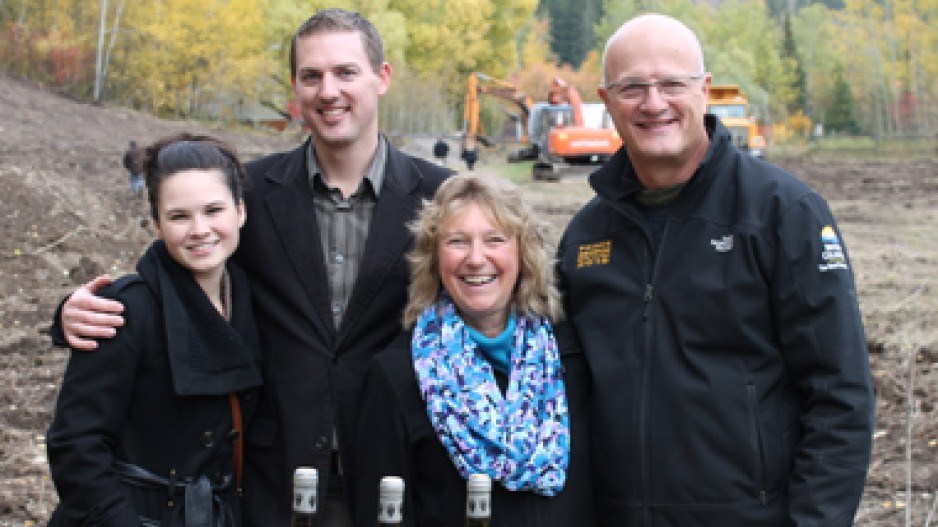Fruit winery owners expect their industry to get a bump in street cred thanks to former B.C. cabinet minister Pat Bell spending more than $1 million to open a fruit winery in northern B.C.
“It’s fantastic,” said Terry Bremner, who owns Wellbrook Winery in Delta. “He might know ways to help the industry make inroads in getting fruit wines accepted by the general population.”
Bell told Business in Vancouver that his Northern Lights Estate Winery, on 4.2 acres near Prince George, would be the northernmost in B.C.
To avoid any public perception of favouritism, Bell did not apply for any government grants or funding.
Tens of thousands of dollars in grants are available from the joint federal-provincial Investment Agriculture Foundation of BC in various programs, many of which are designed to boost sustainability by limiting the use of water and fertilizer.
Bell also opted not to get help with financing from Northern Development Initiatives Trust, whose mandate is to help diversify local economies and support new ventures.
Other regions of B.C., such as the Okanagan, have similar trusts with similar mandates.
Bell said he will even stay out of lobbying government to do what other B.C. fruit winery owners have long wanted: the ability to qualify for the BC Wine Authority’s BCVQA symbol and be sold in BCVQA stores.
“Being able to apply to get the BCVQA designation certainly couldn’t hurt,” said Steve Venables, who owns Forbidden Fruit Winery in the Similkameen Valley. “It would open up new ways to sell the wines.”
Bell sought Venables’ advice before Bell launched his fruit wine venture. Venables told him not to make too much wine too soon without being certain who would buy his product.
Fruit wines are best consumed fresh, Venables said, so aging unsold product will likely diminish quality.
Bremner agreed.
He said that, even though it sounds trite, the best way to make sales is to have a quality product.
Bell plans to slowly work up to a maximum of 2,000 cases and to sell all of his wine at his onsite store or via the Internet.
His son, Doug Bell, will be the operating partner while Bell will work part time at the winery and part time on the board of Conifex Timber Inc. (TSX-Venture:CFF) and as an adviser to engineering company Allnorth.
He plans to make wine from 10 fruits, including three that have not yet been used to make wine in B.C.: jostaberry, goji berry and haskap.
Bell said he chose haskap for its sales potential given that it tastes similar to grapes.
Sales are not expected to start until 2015, and Bell plans to use B.C. fruit exclusively, which is one of the requirements to secure a land-based winery licence.
Failing to get that licence would mean he would be categorized as a commercial winery – something that for a small operator would be a “headache,” according to Vintage Law Group principal Mark Hicken.
“Commercial wineries can sell out of a tasting room,” Hicken said, but it’s a lot more complicated because of all the bureaucracy involved.”
Bell, 56, did not run in the last provincial election after being diagnosed with an aneurysm. He said doctors are watching the aneurysm closely but he feels fine.
“I still have a good career of winemaking in front of me.” •




